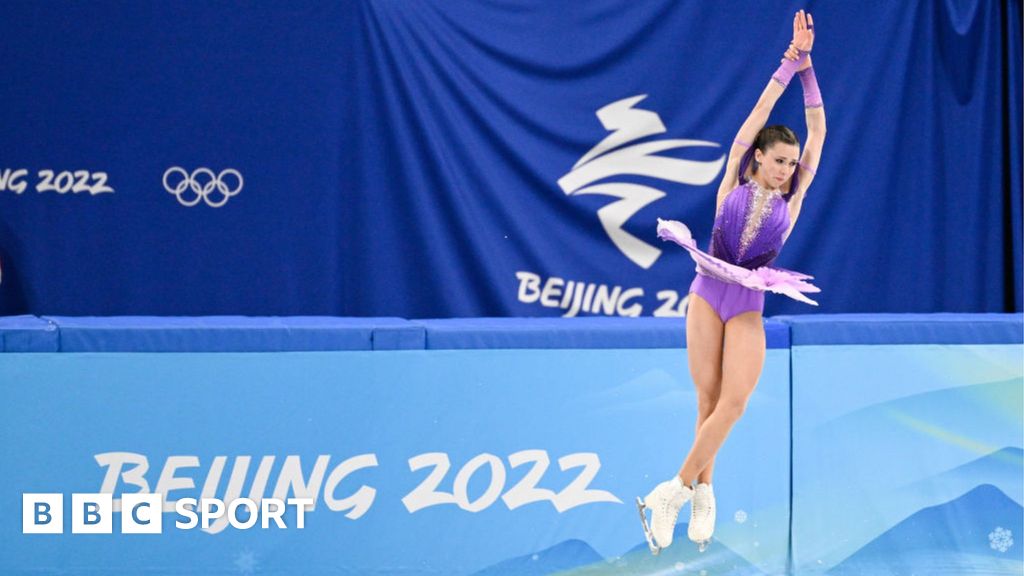Russian Kamila Valieva’s four-year doping ban “has brought some justice to the clean sport movement”, says US figure skater Evan Bates.
Medals were not awarded at the team event at the 2022 Winter Olympics after Valieva, then 15, failed a doping test.
Her ban was confirmed on Monday and her results nullified, meaning Russia were demoted from gold to bronze.
“For the legacy of clean sport, this is a landmark case,” said Bates, who with the US team has been promoted to gold.
Bates, 34, added: “It is an unprecedented case where 21 clean athletes left an Olympic Games without a medal they won cleanly. It has brought some justice to the clean sport movement and I think clean athletes around the world will find some joy and solace in knowing clean sport matters.”
A Court of Arbitration for Sport (Cas) ruling on Monday also expunged Valieva’s results from 25 December 2021 – the date of her failed test and the start of her backdated ban.
On Tuesday, the International Skating Union (ISU) – the sport’s governing body – relegated the Russian team to the bronze medal position after removing Valieva’s scores.
The United States finished in the silver medal position and will now be awarded gold, with Japan elevated to silver.
It had been anticipated that Canada would receive bronze following their fourth-place finish two years ago.
However, they finished one point behind the Russian team once Valieva’s points were removed. Skate Canada and the Canadian Olympic Committee said they were “extremely disappointed” and will “consider all options to appeal this decision”.
It is the first team Olympic gold medal in US figure skating history.
Bates’ team-mate Madison Chock said the “dream scenario” would be to receive their gold medals at this summer’s Olympics in Paris.
“We would love to have a true Olympic medal ceremony. A medal ceremony at the Paris Games this summer, that would be a dream scenario,” she said.
The International Olympic Committee said it will contact the relevant nations’ Olympic committees “in order to organise a dignified Olympic medal ceremony”.
News of Valieva’s failed test only emerged after she had helped Russia to team gold.
A Russian Anti-Doping Agency (Rusada) investigation later found the teenager bore “no fault or negligence” for the failed test. Her team has always maintained “contaminated cutlery” led to her accidentally ingesting some of her grandfather’s heart medication – trimetazidine, which is a banned substance for athletes.
The World Anti-Doping Agency (Wada) and the ISU appealed against that finding and Cas upheld their appeal.
The Russian Olympic Committee said it would appeal against the ISU decision.

Olivia Martin is a dedicated sports journalist based in the UK. With a passion for various athletic disciplines, she covers everything from major league championships to local sports events, delivering up-to-the-minute updates and in-depth analysis.








